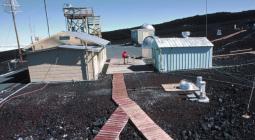Convergence between technological progress and sustainability is not that obvious

The coronavirus pandemic, like climate change, teaches us about the importance of mitigating risk to ensure our future prosperity. Should we place all our hopes on technology to deliver this safer future?
In 1865, economist William Stanley Jevons observed that technological advancements in coal burning failed to cut coal consumption, instead leading to a sharp increase. This observation, known in environmental economics as the Jevons paradox, was attributed to increased efficiency in resource use leading to cheaper goods, thereby boosting demand.
Three decades ago, Nobel Laureate Robert Solow made another important observation about technology’s limits, this time in computer science: despite rapid progress in computing power, including economic sectors heavily investing in IT, overall productivity growth slowed down, owing to a significant lag before the new-found computing power was effectively integrated into economic activities.
Today, the world is pressingly faced with myriad technological challenges: the immediate focus is on developing a coronavirus vaccine, but in not too long we will be returning our attention to asking how modern technological advancements can deliver both climate action and sustainable economic development. So far, the results are mixed, to say the least.
Despite efforts to promote clean energy sources like solar and wind, the fossil fuel regime still retains a daunting 80 percent of final energy use globally. While energy efficiency is considered a top priority, over the last quarter century, energy use has instead grown (by over 50 percent) far quicker than population growth (35 percent).
ncreasing Google services users tripled respective energy consumption during the past eight years; the annual footprint of cryptocurrency mining networks is now comparable to national economies; the majority of global bandwidth is consumed for video streaming, and so on.
Some of these services are readily available and freely accessible (e.g. YouTube); although such free access is socially beneficial and contributes to sustainability in various manners (e.g. by reducing inequalities), free-riding in highly energy-consuming lifestyles is not in keeping with the traditional climate policy model and required sustainability efforts.
Digitalisation is, in the scientific community and otherwise, widely considered an enabler of behavioural change that can help materialise a low-carbon, less material-intensive future. But there is a very real possibility that people will instead give in to a society-wide rebound effect, where more energy is needed to use a larger number of higher efficiency services.
Think of the future smart household with multiple video screens, virtual reality terminals and any new number of electronic consumer devices marketed to us by firms chasing sales and profit.
These observations point to a modern technological paradox: the technological means become their own ends. Growth is determined in a process of quantitative and technological expansion, and one-dimensional narratives of “market growth”, “competitiveness” and “consumerism” dominate debates.
But complex environmental challenges like the climate crisis require more than outdated approaches of ecosystem pricing, carbon taxation, clean energy subsidies and other ways of accounting for environmental damages.
The world needs to revisit and reform its growth model in societal, environmental, governance and financing terms. Crucially, this means a more holistic consideration; sustainability and growth are not isolated issues, but rather two sides of the same coin.
After the COVID-19 outbreak, greenhouse gas emissions, currently projected to fall by an impressive yet insufficient 5-8 percent by the end of 2020 due to the collapse of fossil fuel demand, are expected to bounce back, sooner or later.
This rebound was the case after previous global economic and other crises. And it will be the case now, unless governments listen this time and invest in climate-friendly infrastructure, technology and practices.
Europe must be at the forefront of this effort, fostering, rather than delaying, crucial aspects of the European Green Deal, and greening the recovery. This will enable significant drops in greenhouse gas emissions on an annual basis, which will be in line with the Paris Agreement and built on a sustainable new norm that we choose, rather than inadequate and temporary cuts enforced by the current state of emergency.
Current efforts to flatten the curve of COVID-19 infections across the globe indirectly pushed entire industries to shift to working from home and cut greenhouse gas emissions by putting heavy transportation to hibernation.
However, neither lockdown measures nor plans to lift them so far entailed action in a sustainable, resilient direction. It seems that, still, there is no targeted planning for a green recovery from the pandemic, as countries slowly begin to kickstart their economies.
We should learn the best lessons from the Coronavirus response, and our previous technological missteps, to inform our understanding of how technology can promote sustainable behaviours, without creating new paradoxes and without creating new losers.
Written by
on 6 May 2020
RELATED CONTENT




